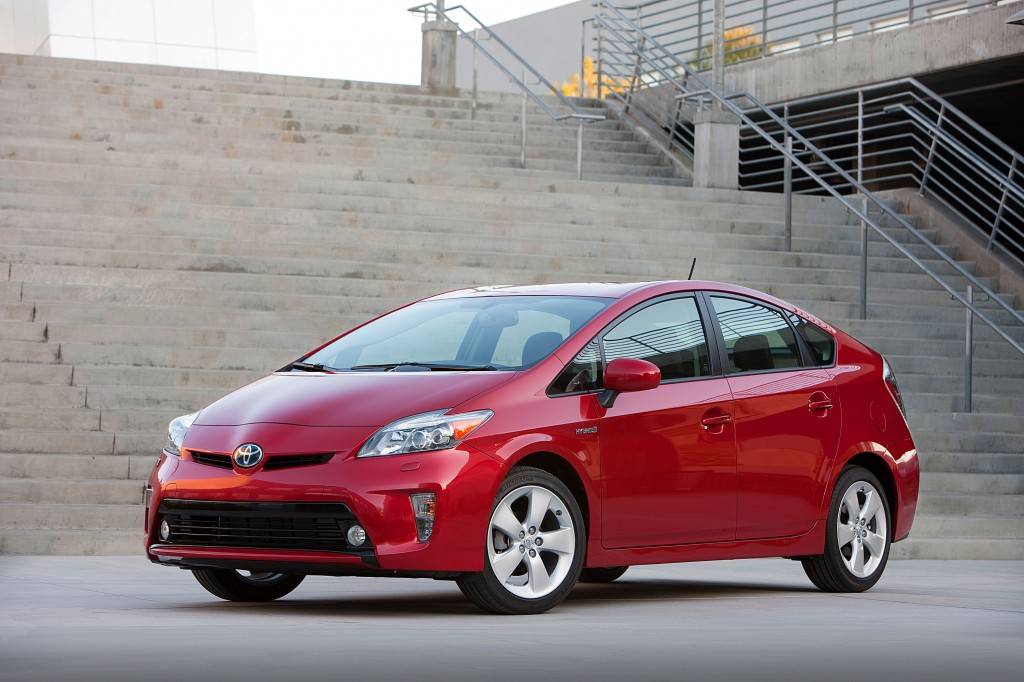While government regulations push carmakers to achieve ever-greater increases in fuel economy, the question of whether consumers actually care about the efficiency of their cars remains.
In addition to its environmental benefits, increased fuel economy can help owners save money.
But it's just one of a long list of factors each person considers when buying a new car.
DON'T MISS: Gas Prices To Rise Again, So Fuel Economy Crucial In New Cars, Consumers Say
Even when good fuel economy is a priority, the current hybrids, electric cars, and increasingly efficient gasoline and diesel models offer many different ways to attain it.
So how important are each of those different options, relative to each other?
As it turns out, consumers do care about good fuel economy, but not how they get it, according to a new study from the University of Michigan Transportation Research Institute (abstract here).

2015 Toyota Prius Liftback
Researchers Brandon Schoettle and Michael Sivak based their conclusions on completed online surveys from 674 U.S.-resident respondents.
The vast majority of respondents expressed at least some interest in fuel economy.
Almost half said that fuel economy was "very important" to them, 39.5 percent said it was "somewhat important," and 9.3 percent said it was "slightly important."
ALSO SEE: Three Years Later, Most Consumers Don't Understand The Chevy Volt (Apr 2014)
Just 2.1 percent of respondents said fuel economy was "not at all important" in their car-buying decisions.
However, 51.8 percent of respondents said that how a vehicle saves fuel or reduces emissions was not important.
Among those who did express a preference, "engine improvements" and alternative fuels were the top choices, at 23.9 percent and 20.2 percent respectively.

2015 Mazda 3
Knowledge of the fuel-saving technologies themselves varied widely.
While 89.9 percent of respondents said they had a basic working knowledge of diesel engines and 89.5 percent said the same about hybrids, awareness of other technologies--some arguably more common in showrooms--was significantly lower.
About 50 percent of respondents said they had never heard of continuously-variable transmissions. Almost 60 percent said the same about cylinder deactivation, but only 19 percent admitted ignorance of turbocharging.
MORE: Will Fuel Economy Rules Require Future Cars To Use Premium Gas?
The increasing use of turbos may require more cars to use premium fuel, especially in premium brands.
But, according to the study, that's a line most buyers aren't willing to cross in the name of fuel economy.
A whopping 72.6 percent of respondents said they would be less likely to consider a more efficient vehicle if it only used premium fuel.
Still, the overall consumer acceptance of fuel-saving measures indicated by this study should be a comfort to carmakers, which are now collectively taking an all-of-the-above approach to meeting stricter global efficiency standards.
_______________________________________________












